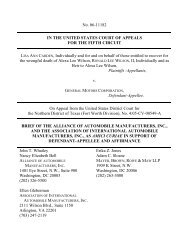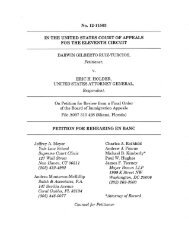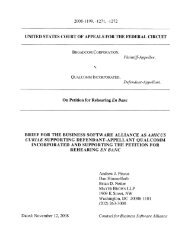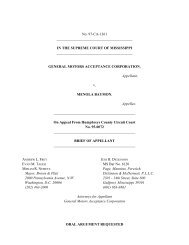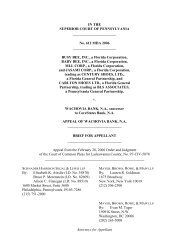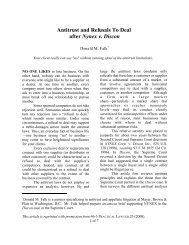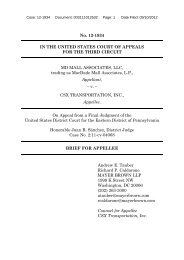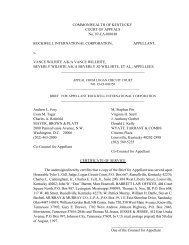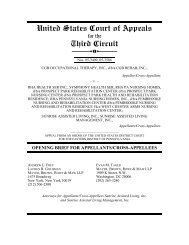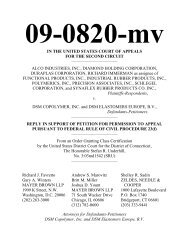No. 5-99-0830 IN THE APPELLATE COURT OF ... - Appellate.net
No. 5-99-0830 IN THE APPELLATE COURT OF ... - Appellate.net
No. 5-99-0830 IN THE APPELLATE COURT OF ... - Appellate.net
Create successful ePaper yourself
Turn your PDF publications into a flip-book with our unique Google optimized e-Paper software.
Litig., 182 F.R.D. at 225.<br />
Basic fairness requires that State Farm have a right to defend its conduct based on<br />
the facts and circumstances of each transaction. A class action is a fair and efficient way of<br />
adjudicating the controversy if all of the transactions are essentially identical because, in that<br />
situation, plaintiffs are put to their proof with respect to all members of the class and the<br />
defendant will have a full and fair opportunity to present all of its defenses. But in a case like<br />
this, where the relevant facts of the millions of individual transactions at issue vary greatly,<br />
trying the case as a class action inevitably minimizes the plaintiffs’ burden of proof and<br />
deprives the defendant of the right to present its best defense. Such a result is not “fair.” On<br />
the contrary, it is so clearly unfair that it constitutes a deprivation of the defendant’s basic<br />
right to due process under the Illinois and the United States Constitutions.<br />
D. The Circuit Court Erred In Concluding That The Class Representatives<br />
Fairly And Adequately Represented The Class.<br />
The Illinois class action statute also requires a proper determination that the named<br />
plaintiffs will “fairly and adequately protect the interest of the class.” 735 ILCS 5/2-801(3).<br />
This provision requires, among other things, that there be no significant conflicts between<br />
the named class representatives and the class members, or among the class members<br />
themselves. See Miner, 87 Ill.2d at 14; see also Magro, 67 Ill.2d at 161 (“The general rule<br />
is that a class action cannot be maintained unless all members of the class have a common<br />
interest in the questions involved and the results of the suit.”). Similarly, the federal due<br />
process clause requires that the class be free from significant conflicts of interest. Hansberry<br />
v. Lee, 311 U.S. 32, 44-45 (1940).<br />
In its class certification order, the circuit court held that there were no conflicts of<br />
-69-



